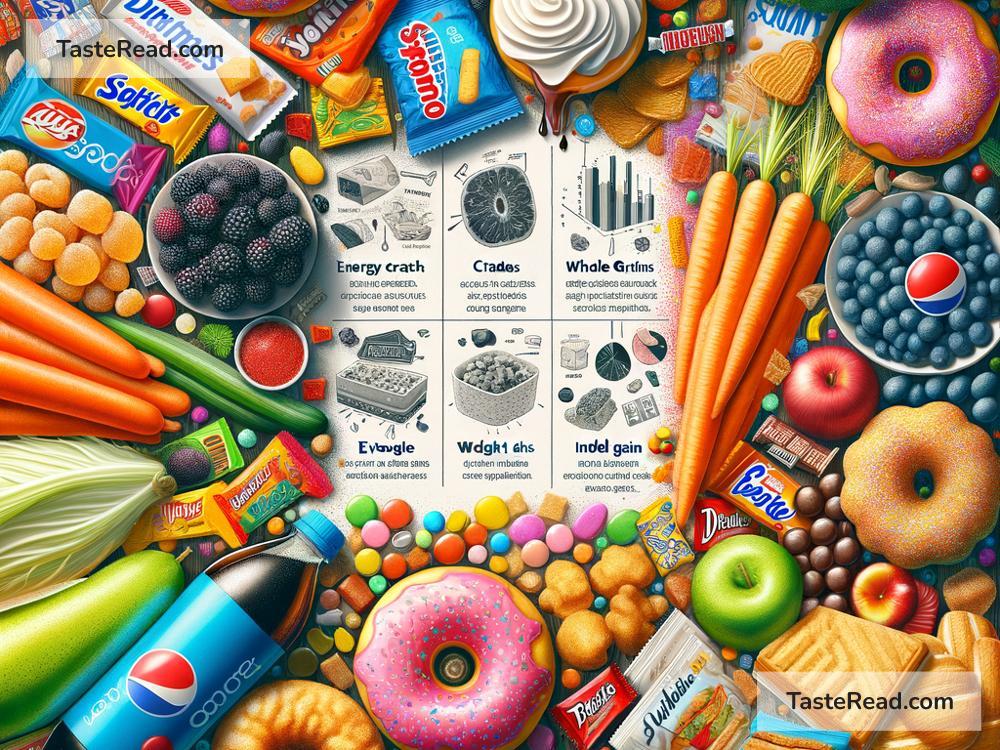The Sweet Truth: The Effects of Sugar on the Body
Sugar is everywhere. It’s in the food we eat, the drinks we sip, and even in items we don’t expect, like bread and tomato sauce. While sugar can make food taste delicious and give us a quick burst of energy, consuming too much can negatively affect the body in ways you might not realize. Let’s take a closer look at what sugar does and why we need to be mindful about how much we consume.
What Is Sugar?
Sugars are a type of carbohydrate, which provide energy for the body. There are naturally occurring sugars, like those found in fruits, vegetables, and milk, and there are added sugars, which are included during food processing or preparation—like those you find in soft drinks, cookies, and candy. Our bodies need sugar for energy, but problems arise when we consume too much of the added and processed kind.
Sugar and Energy Levels
Ever feel a sudden boost of energy after eating something sweet, only to crash shortly after? That’s because sugar quickly raises the body’s blood sugar levels, providing a fast surge of energy. This is sometimes called a “sugar rush.” However, this energy doesn’t last long. When blood sugar levels drop rapidly, you may feel tired, cranky, and sluggish. This cycle of highs and lows can make you crave more sugar, leading to unhealthy eating patterns and a higher risk of health problems.
Weight Gain
Eating too much sugar can lead to weight gain. Foods and drinks high in sugar often contain a lot of calories without providing important nutrients. For example, drinking a sugary soda can add hundreds of calories to your diet without making you feel full. Over time, these added calories can result in extra weight. Excess sugar also affects how your body stores fat, making it harder to maintain a healthy weight.
Tooth Decay
The effect of sugar on your teeth is one of the most immediate and visible concerns. When you eat sugary foods, bacteria in your mouth produce acid as they break down the sugar. This acid can damage your teeth, leading to cavities and tooth decay. That’s why dentists often recommend limiting sugar and brushing after meals if you’ve had something sweet.
Risk of Chronic Diseases
Eating a lot of sugar over months and years can lead to serious health problems. One of the most concerning risks is the development of Type 2 diabetes. Consuming excessive sugar can lead to insulin resistance—a condition where the body has trouble regulating blood sugar levels. This is a major cause of diabetes. Sugar is also linked to heart disease, as it can contribute to high blood pressure, inflammation, and unhealthy cholesterol levels.
Another risk is non-alcoholic fatty liver disease (NAFLD). The liver processes the sugar you eat, and eating too much can overwhelm it, causing fat to build up. Over time, this can damage the liver and lead to bigger health issues.
Sugar and Your Mood
Have you ever felt grumpy after skipping a meal or during those post-candy sugar crashes? Sugar affects your mood too. While it might make you feel good for a short time after eating it, too much sugar can lead to anxiety, irritability, and even depression over time. Research has shown that diets high in sugar may be linked to an increased risk of mental health problems, including stress and depression. Balancing your diet with healthier food options can help stabilize your mood and energy levels.
Skin Problems
Excess sugar doesn’t just affect your organs—it can also affect your skin! Eating too much sugar can trigger inflammation, which is linked to acne breakouts. High sugar intake can also lead to a process called glycation, where sugar molecules in your body damage proteins like collagen. Collagen is important for keeping your skin firm and youthful, so consuming too much sugar can make your skin look older over time.
How Much Sugar Is Too Much?
Experts recommend limiting added sugars to no more than 6 teaspoons (25 grams) per day for women and 9 teaspoons (36 grams) per day for men. However, many people consume much more than this. Sugary drinks like sodas and flavored coffees are major sources of added sugar, so cutting back on these beverages can help make a big difference.
Tips to Reduce Sugar Intake
Reducing sugar doesn’t mean giving up everything you love—it’s about making smarter choices. Here are some simple tips to reduce how much sugar you consume:
- Read labels: Check food packaging for added sugars under different names, like “high fructose corn syrup” or “cane sugar.”
- Choose water over soda: Replace sugary drinks with water, herbal tea, or unsweetened flavors.
- Opt for natural sweetness: Eat fresh fruits instead of candy or baked goods for a natural sugar source packed with fiber and vitamins.
- Cook at home: Homemade meals give you control over what goes into your food, helping you avoid hidden sugars in processed products.
- Limit desserts: Save sugary treats for special occasions rather than eating them daily.
Final Thoughts
Sugar isn’t all bad—in fact, it’s a necessary source of quick energy. But consuming too much, especially added sugars, can lead to weight gain, tooth decay, and chronic diseases. Keeping an eye on your sugar intake can protect your health in the long term, improve your mood, and make you feel more energized.
Remember, moderation is key. By making small changes to your daily habits, you can enjoy the sweetness of life without compromising your health. Let’s take charge and make smarter choices for a healthier, happier you!


